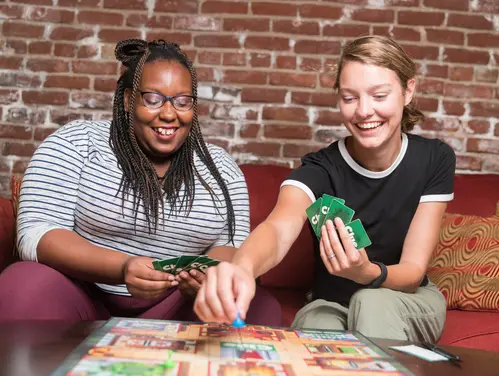What Makes a Good Mentor?
Most of us have had a teacher, supervisor, or coach who has been a mentor to us and made a positive difference in our lives. Those people wore many hats, acting as delegators, role models, cheerleaders, policy enforcers, advocates, and friends. Mentors assume these different roles during the course of a relationship, and share some basic qualities:
- A sincere desire to be involved with a young person
- Respect for young people
- Active listening skills
- Empathy
- Ability to see solutions and opportunities
- Flexibility

